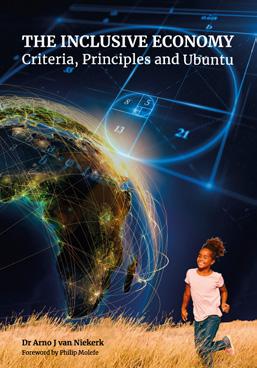
3 minute read
Book Review
Pensions for Palookas
Author: Brett Ladoucé
Advertisement
Publisher: Reach publishers
Retail price: R300 (Takealot), US$19.99 (Amazon) or email pensionsforpalookas@gmail.com
There have been some good books published in the last few years on the subject of retirement: saving for retirement in your working years and then living off your savings once you’ve stopped working. The comprehensive Ultimate Guide to Retirement in South Africa, by Bruce Cameron and Wouter Fourie, springs to mind.
But this book is more focused: it looks at retirement funds in particular and answers important questions that anyone saving in a retirement fund should know, such as “What happens to my retirement savings on divorce?” and “How does tax affect my retirement savings?” And because such a large proportion of working South Africans belong to a retirement fund, including those just out of school, its reach is broader and as such it fills an important gap.
Retirement funds, which comprise pension, provident, preservation and retirement annuity funds, have specific legal characteristics, as set out in the Pension Funds Act and related legislation. They enjoy far greater protection under the law than other types of investments, plus they offer members unique benefits, such as the tax deductibility of contributions.
Brett Ladoucé is an Advocate of the High Court and one of the country’s leading pension lawyers. He has more than 20 years’ experience in the financial services industry as a legal advisor, product manager, senior development manager, compliance officer and managing director of a financial services firm.
In a series of chapters tackling common questions on retirement funds, Ladoucé uses language that is accessible to the everyday reader, explaining legal concepts and terms where necessary and providing tables and graphs to substantiate his answers. The delightful illustrations are by Ladoucé’s teenage son Micah. - Martin Hesse

The Inclusive Economy
– Criteria, Principles and Ubuntu
Author: Dr Arno J van Niekerk
Publisher: UJ Press
Retail price: R550 (print), R325 (digital)
Economists the world over recognise that capitalism in its current form is in crisis. It’s an echo of a crisis it faced a century ago, which resulted in the rise of its antithesis, communism. In the intervening years, communism proved disastrous, while capitalism was buffeted left and right, at times adopting socialist elements, at other times harking back to a pure free-market economy.
In my view the Scandinavian countries have reached a balance between capitalism’s emphasis on the individual and socialism’s emphasis on the community. But the rest of the world remains adrift and divided and, sadly, is becoming more and more polarised between the haves and the have nots.
While Africa might be considered by many to be the last place they would look for a solution, Dr van Niekerk, an economist and lecturer at the University of the Free State, believes the African concept of ubuntu holds the secret to restoring economic balance and enabling progress that benefits all. Ubuntu’s emphasis on our humanity and connectedness can be harnessed to reposition economies in the aftermath of the Covid-19 pandemic to become more inclusive and more sustainable.
The Inclusive Economy sets out his thesis in detail. Idealistic it may be, but then so were the movements to end slavery and to end apartheid. As Nelson Mandela said, “It always seems impossible until it’s done.” -
Martin Hesse











